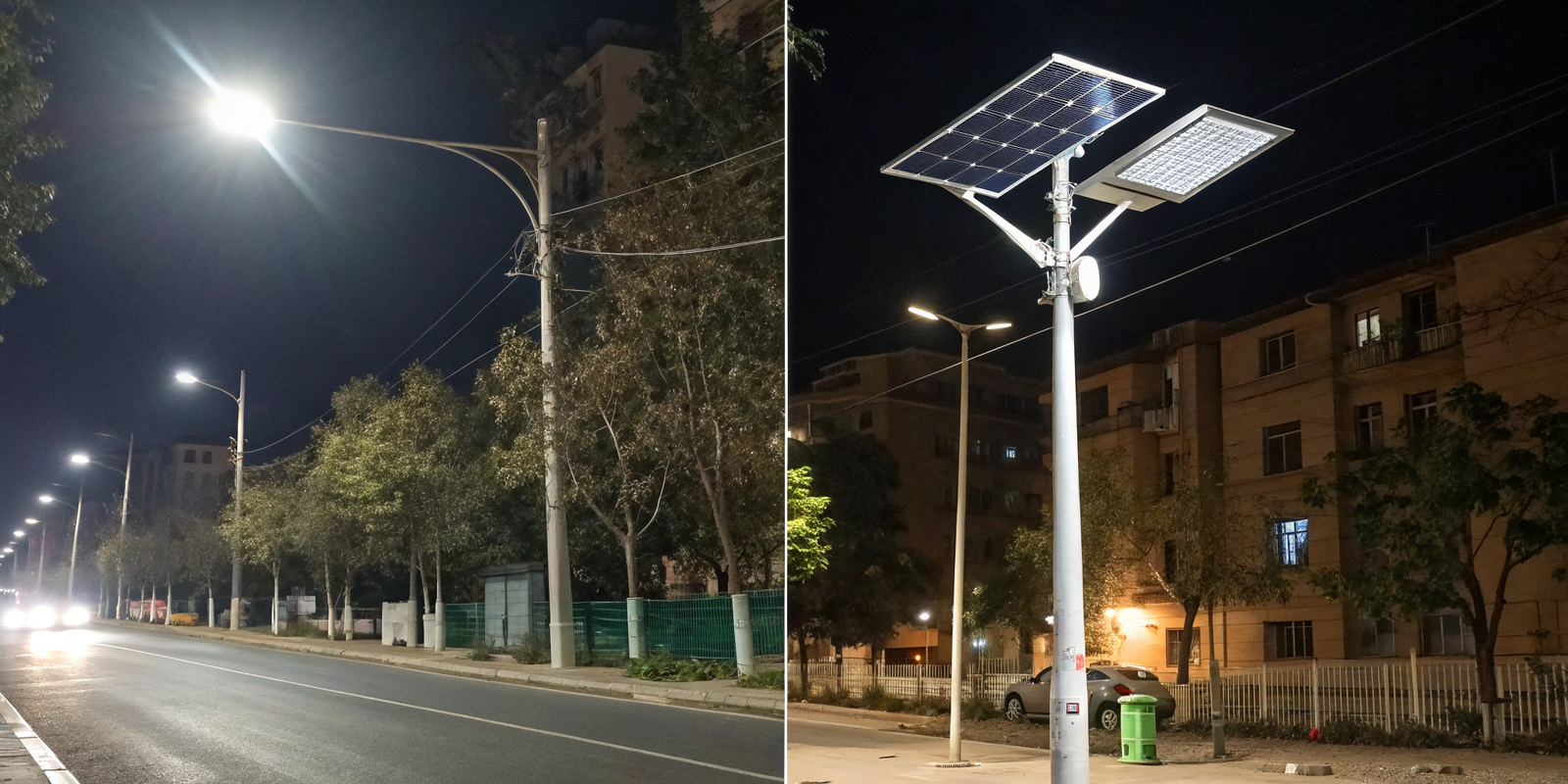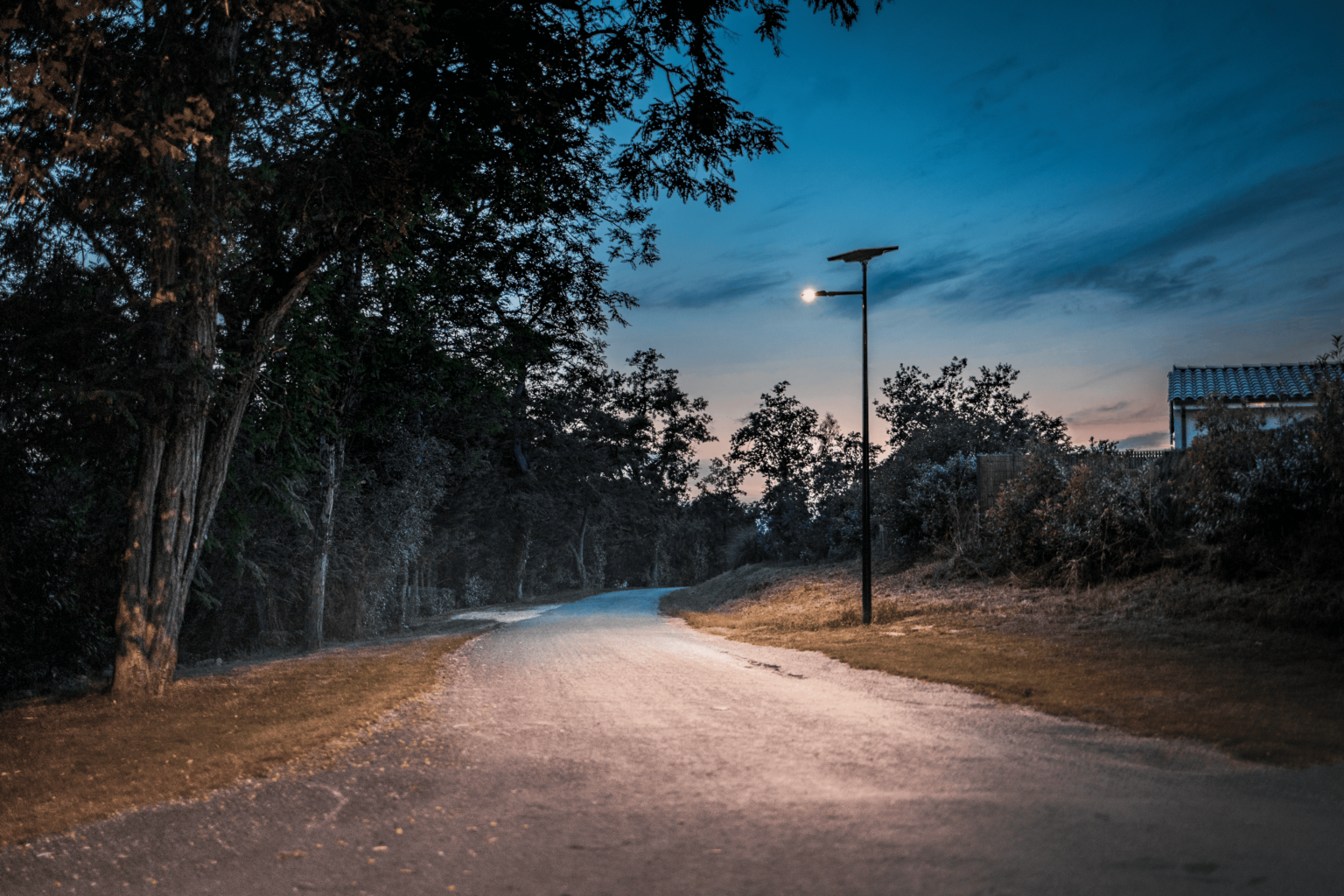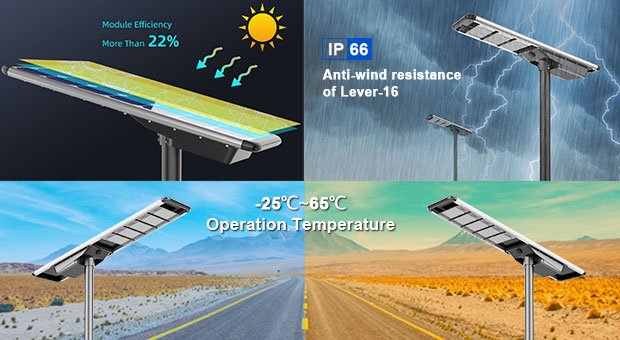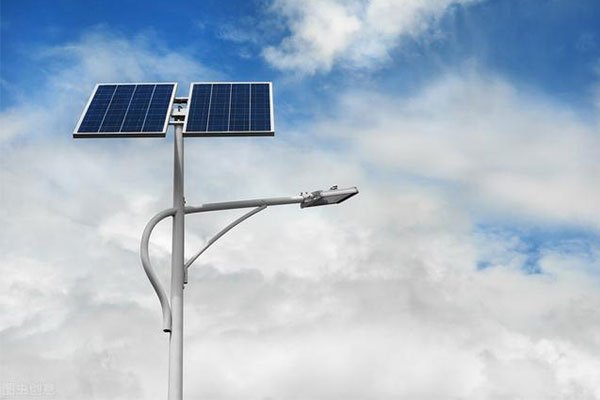Outdoor lighting matters — but picking the wrong type could leave you with dark corners, high bills, or lights that don’t last.
The better choice depends on your needs: LED lights offer stronger brightness and reliability, while solar lights bring energy savings and easy setup — or choose both for a balanced solution.
There’s no one-size-fits-all. Let’s dig into the real differences and how to make the best choice for your space.
Confused About Outdoor Lighting Options? You’re Not Alone
It’s easy to get stuck choosing between LED and solar lighting. You want something that’s bright, long-lasting, and cost-effective.
But choosing wrong could mean rewiring, poor lighting, or wasted money on replacements.
Let’s clear the air and explore each option in real terms — brightness, cost, lifespan, and installation.
What’s the Real Difference Between LED and Solar Lights?

At first glance, it looks like we’re comparing apples to oranges — but it’s not that simple.
LED and solar lighting often work together. Many solar lights use LED bulbs, which are efficient and bright.
Are They Mutually Exclusive?
Not at all.
- LED lights refer to the type of bulb (Light Emitting Diode).
- Solar lights refer to the power source — sunlight, stored in a battery.
So when we say “LED lights,” we usually mean grid-powered LED systems.
When we say “solar lights,” we mean solar-powered systems with LED bulbs inside.
Quick Comparison: Solar vs LED Lighting Systems
Here’s a simple table to compare both technologies at a glance:
| Feature | Grid-Powered LED Lights | Solar-Powered LED Lights |
|---|---|---|
| Power Source | Electricity (grid) | Sunlight → Battery |
| Installation | Needs wiring | Plug-and-play (no wires) |
| Brightness | High and steady | Medium, varies with sunlight |
| Energy Cost | Ongoing utility bills | None |
| Lifespan | 25,000–50,000 hours | 5–10 years (battery-limited) |
| Maintenance | Very low | Battery replacement required |
| Environmental Impact | Varies by power source | 100% clean energy |
| Best Use | Streets, parking, security | Gardens, paths, off-grid use |
If you’re in a city or commercial site with existing electrical access, LED wins on brightness and reliability.
If you're off-grid or eco-focused, solar gives you independence and cost savings.
When to Choose LED Lights Over Solar Lights

There are cases where grid-powered LED lights clearly make more sense.
If brightness, precision, and uninterrupted power matter most — go with LED systems.
✅ Brightness & Coverage
LEDs deliver strong, focused light. That makes them ideal for:
- Security lighting
- Parking areas
- Public roads
- Commercial buildings
They provide consistent brightness, even on rainy days or through the night.
✅ Electricity Access
If wiring already exists or trenching isn’t an issue, a grid-powered LED system offers:
- Better scheduling control
- Dimming, motion sensors, timers
- Easier integration with smart home or building systems
You won’t worry about charging conditions or battery size.
✅ Cold or Cloudy Climates
In areas with limited sunshine — like long winters or cloudy zones — solar might struggle.
LEDs powered by the grid keep shining regardless of the weather.
That makes them ideal for places with long dark seasons.
When to Choose Solar Lights Over LED Lights
Sometimes, less wiring means more freedom.
If you want zero electricity costs, faster installation, and greener operations, solar lights are the better pick.
✅ Off-Grid Simplicity
In places without electricity access — farms, remote paths, rural homes — solar lights are the only option.
No wiring. No permits. Just mount and go.
Solar-powered LED lights have opened up lighting in villages, disaster relief zones, and remote development projects.
✅ Easy DIY Installation
Anyone can install a solar light with basic tools. All-in-one systems need just:
- A pole
- Sunlight
- A good mounting angle
Perfect for driveways, cabins, paths, or temporary setups. No need to hire electricians or dig trenches.
✅ Sustainability Goals
For eco-conscious homes or businesses, solar lights deliver:
- Zero-emission lighting
- Lower lifetime carbon footprint
- A visible sign of green commitment
I’ve worked with clients across Africa who chose solar lighting to align with donor-supported sustainability projects — it’s often a win-win.
Still Not Sure? Ask These Questions First

Not sure which way to go? Ask yourself these four questions:
-
Do I have access to electricity in the location?
- If no → Solar might be your only option.
-
Is brightness or independence more important?
- For strong, reliable light → LED
- For freedom and lower cost → Solar
-
Does my region get enough sun?
- If yes → Solar can fully charge daily
- If not → LED might perform better in winter
-
Is this permanent or temporary?
- Permanent → Consider LED
- Temporary or decorative → Go solar
💡 Pro Tip:
Mix and match. I often recommend solar for paths, gardens, and off-grid areas — and LED floodlights for garages, commercial zones, and security points.
That way, you get savings where possible, and performance where it matters most.
Conclusion: Choose the Right Light for the Right Job
LED lights win on performance and brightness where grid power is available.
Solar lights win on cost, simplicity, and sustainability in off-grid or flexible setups.
There’s no universal best — just the right fit for your space.
🔎 Still deciding between solar or LED lighting?
👉 Contact our lighting experts for a custom solution or download our Outdoor Lighting Comparison Guide (Free PDF).







